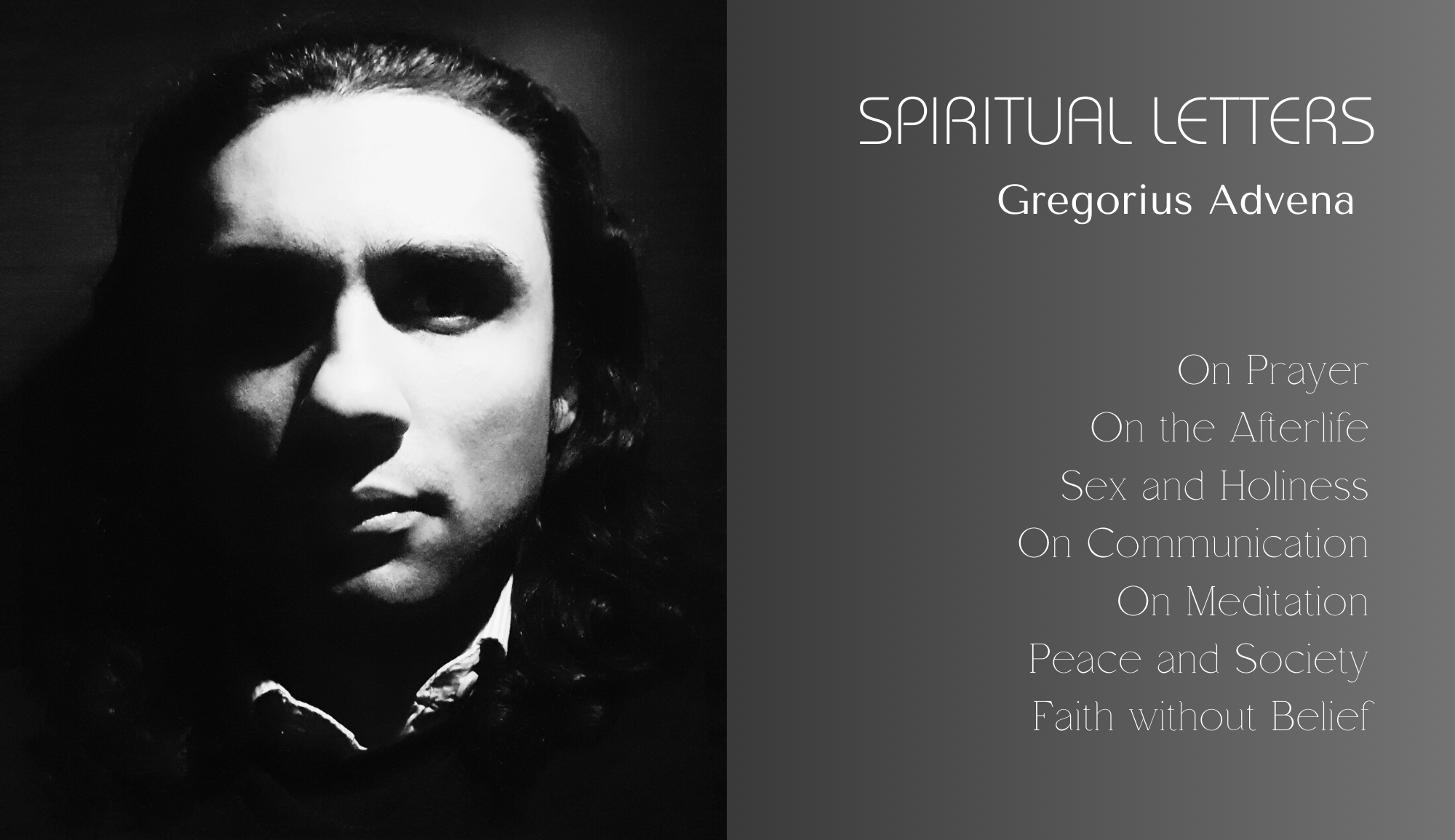Spiritual Letters, order here.
I have published a collection of art letters on religion, the Spiritual Letters. My approach is concerned with the psychology, philosophy and anthropology of religion. The letters are spiritual in a Cartesian sense: relating to the mind in search of abstract meaning in life. An art letter allows you to discuss a topic with unlimited freedom. It can accommodate (as my letters do) argumentation, reflection, lyric, drama, epic, narration etc. Some call it creative non-fiction, a rare but old approach. I make sure to seek a dialogue with tradition: literary, religious, philosophical.
It will surprise some that people may be attracted to prayer without being believers. Prayer predates religion. The same is true of meditation. Most think of the afterlife as a product of religious narratives. Few imagine they may survive death by an accident of nature. Would you wish to? Others condemn religion for oppressing sexuality, but the human disquiet around sexuality is older than religion. Maybe there is a way to embed sex in a different concept of holiness. Most associate religion with concrete beliefs and practices, but regardless of those religion is a vision for meaning in life. The way most people regard peace, rights and duties in society is based on religion, which often goes unnoticed. And most understand faith in something as belief in its existence. But it can be shown faith is something much deeper than belief. Something beyond religion.
Religion is one of those things you either love or hate (some manage to love and hate it at once). Whatever side you take, this book will show you religion and non-religion from angles you have never seen before. It is an uncompromising critique of both, an intimate and unique companion that will not fail to enrich your journey.

»We are being made aware that the organization of society on the principle of private profit, as well as public destruction, is leading both to the deformation of humanity by unregulated industrialism, and to the exhaustion of natural resources, and that a good deal of our material progress is a progress for which succeeding generations may have to pay dearly.« (T. S. Eliot, 1939) Mastodon
»Gegen das Wort von Goethe: ‘Die Kunst beschäftigt sich mit dem Schweren und Guten’ fand er einzuwenden, dass das Leichte auch schwer ist, wenn es gut ist, was es ebensowohl sein kann wie das Schwere. Davon ist etwas bei mir hängengeblieben, ich habe es von ihm. Allerdings habe ich ihn immer dahin verstanden, dass man sehr sattelfest sein muss im Schweren und Guten, um es so mit dem Leichten aufzunehmen.« (Thomas Mann, 1942)

